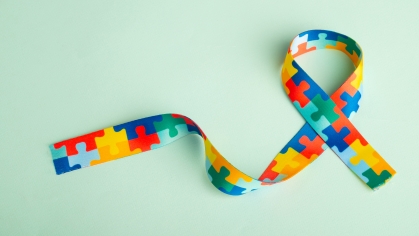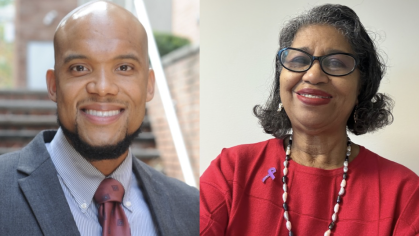According to the World Health Organization, “The overall objective of World Mental Health Day is to raise awareness of mental health issues around the world and to mobilize efforts in support of mental health. The Day provides an opportunity for all stakeholders working on mental health issues to talk about their work, and what more needs to be done to make mental health care a reality for people worldwide.”
Rutgers School of Social Work lecturer Jacquline D. Phillips LCSW explains the importance of this day and how social workers can support mental health beyond today.
Tell us about your journey into social work.
I grew up in the 1960s and have always had a strong sense of justice and helping. I come from a family that I would describe as unofficial social workers and fighters for justice. Our home was the gathering place for community meetings; it was a safe place to speak and be heard. My mom would feed everyone in the neighborhood and my dad was an unofficial mentor to the young men in our community. I also had an aunt that worked in social services. I have always admired people that helped others for the sake of helping. I have worked in various settings, such as corrections, hospitals, employee assistant programs, a university as a lecturer, and private practice. I have conducted multiple workshops on topics that address mental injury and mental health in diverse populations.
What is the significance of World Mental Health Day for you?
I think that the impact of COVID-19 has created a greater level of importance for me and the world as it relates to addressing mental health. Even though World Mental Health Day started in 1992, there has been more of a global conversation about mental health since 2020. The day was established to bring attention to the layered impact of mental health and mental injury on individuals, families, communities, and countries. This year’s World Mental Health theme, “Mental Health is a Universal Human Right,” resonates with me as a social worker. As a counselor and an instructor for the Clinical Assessment and Diagnosis course at the School of Social Work, I am encouraged by the attention that is being given to mental health. The global attention is lessening stigma and creating more resources. People are more open about mental illness. It is quite common now to watch TV or connect on social media and hear people speak publicly about the impact of mental health on themselves and family members. Many communities that were hesitant to seek counseling became more open to it during 2020.
How can the social work community recognize and commemorate World Mental Health Day?
One thing that social workers can do is wear a green ribbon as that will stimulate conversation and bring awareness. Green is the color for mental health, and it is interesting that it is the color used to symbolize the Earth. Student awareness can be enhanced through class discussions, workshops, and social media. Students are encouraged to participate in a social justice activity that relates to mental health. There are also free videos available to watch regarding World Mental Health Day 2023.
What can the social work profession or social workers do to continue to support mental health beyond World Mental Health Day?
Social workers should remain advocates for underserved communities as it relates to mental health and stay updated on changing policies as it relates to accessing mental health services. One of the impacts of COVID-19 is that mental health care is now made available virtually, which gives more people access. Social workers can educate various organizations on mental health, such as religious organizations, colleges, and employment settings. Social workers can show how mental health is connected to almost every aspect of life. Social workers consistently help individuals, families, and communities find answers and connect with resources. Social workers can help make mental health a daily discussion and be cognizant of the need to care for our own mental health.
This story was created in partnership with Rutgers School of Social Work's Inclusion, Intersectionality, Diversity, Equity, and Advancement (IIDEA) Committee.



